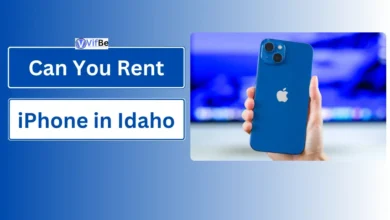Can WhatsApp Messages Be Used in Court? Understanding Legal Implications
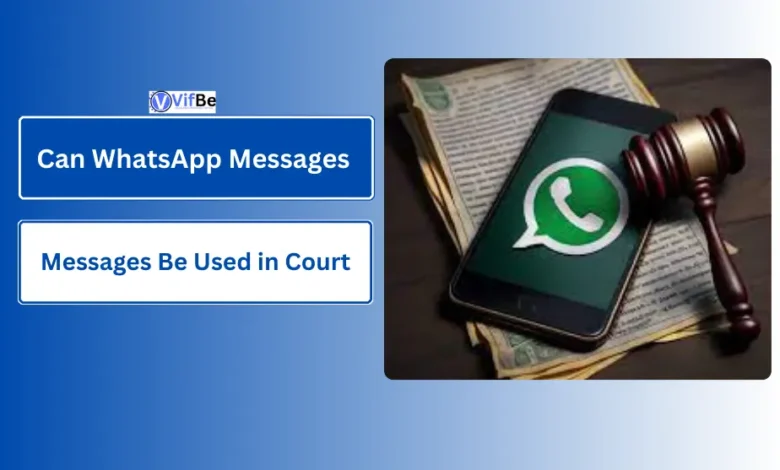
Email communication can be replaced with actual voice communication or can be done over apps such as WhatsApp. Since these are a part of our everyday lives, legal issues pertaining their usage especially in the court have arisen.
This article explores the critical question: The following questions were asked: Is it admissible for a court to consider WhatsApp messages? We will look at the considerations of the laws that relate to E-Evidence, admissibility of communications made through the application, and privacy issue concerning the use of messages in legal processes.
The Legal Framework for Electronic Evidence
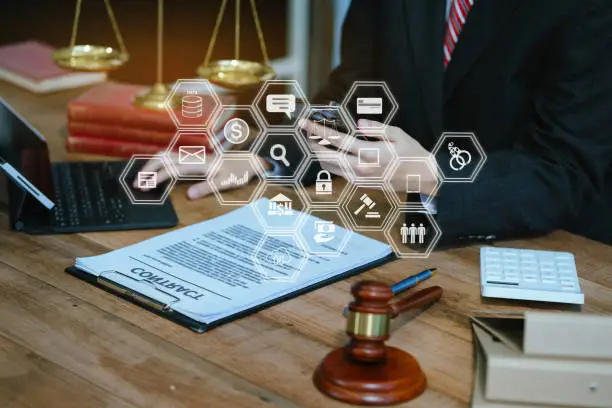
There is a plethora of laws and regulations that define the use of electronics in communicating. It also important to note that such laws state justification about the legal notice for the messages exchanged on platforms like the WhatsApp.
Many of the jurisdictions consider text messages, emails, social media interactions as well as any other electronic evidence the same way as the traditional ones. This encompassed the authentication standard, or the party seeking to tender the messages has to satisfy the Court that they are genuine and material to the case.
WhatsApp Evidence in Court
WhatsApp messages being important content that can be used in criminal cases, divorce, and contractual disputes. Digital evidence has been admitted in courts due to recognition by the courts, dropping the legal standards for accepting it.
For example, there are circumstances when courts allow using the WhatsApp messages as the certain proof of certain actions proving their admissible relevance. Under Case scenarios we find myself reviews where WhatsApp messages proved to be crucial in a court case.
For instance, in 2018, the UK court used WhatsApp messages as a source of evidence to create a timeline of events to help ascertain the murder suspect’s mental status. Likewise in family disputes, processing of data includes WhatsApp chats when parent-child communication patterns are brought up in तलections.
Privacy Considerations About Messages Sent through WhatsApp
However, the use of WhatsApp as a means of communication is a very convenient one, but it has many negative implications for the privacy of the proceedings. Users are again taken by the rhetoric that their conversations are private because they use end-to-end encrypted means, meaning only the sender and the receiver can read the messages. However, the assumption of privacy is different in that when message is put forward in court then none of these elements is granted.
Privacy laws are highly different across different jurisdictions and therefore have an impact on how the courts consider the use of the WhatsApp messages. Now and then, people may unconsciously give up some of their rights to privacy as they share details through the app. Knowing these effects is very important to users who may be involved in legal issues relating to their communication.
Digital Forensics:
WhatsApp message collection and analysis for legal business aims is impossible without digital forensics. It is common that legal people involve specialists to do the extraction and the preservation of the digital data in question to guarantee the admissibility.
This usually entails developing a profile of events or a so-called chain of custody which is crucial in proving that the evidence was not tampered with at any one time while it was being preserved. But in order to keep the chain of custody the proper procedures of the collection of the evidence must be ensured.
This includes; capturing screenshots of the conversations, backing up the messages securely, and writing down the occasions that the messages were retrieved. Noncompliance to these practices may lead to the messages being excluded from the court and hence were rejected.
Admissibility of WhatsApp Messages
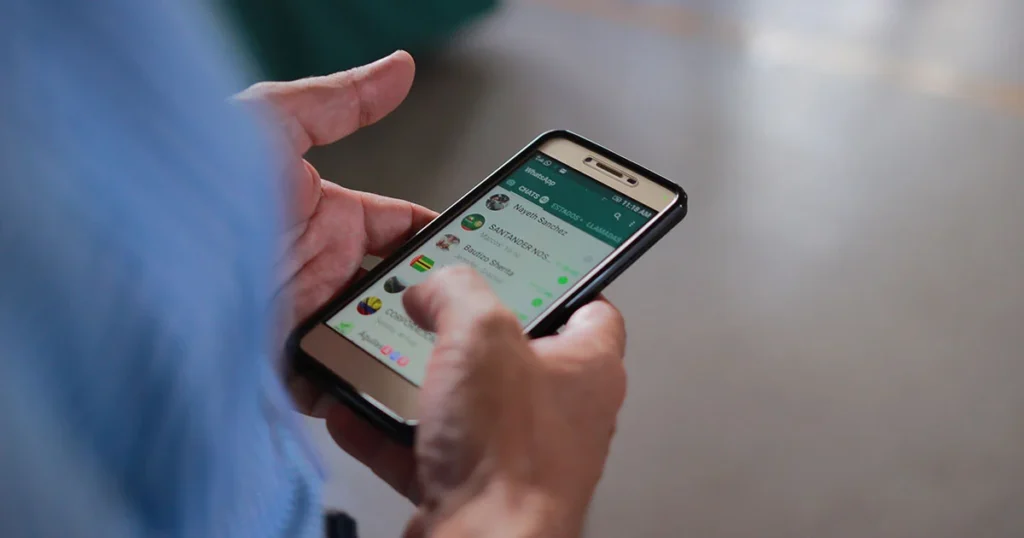
This is one of the challenges that many legal practitioners have faced in the admissibility of ‘’WhatsApp messages’’, in different jurisdictions. It means that presently, each country or state may have its own laws to work with electronic evidence.
For instance, in some jurisdictions, the WhatsApp messages may be considered as valid pieces of evidence, whereas in others there and may be requirements of authentication of the messages and relevancy of the messages. Therefore, based on the current findings, legal professionals need to get acquainted with the laid down regulations concerning the use of WhatsApp messages in court jurisdictionally.
The Effect of End to End Security on the Law
They standard and legal issues that arise from the application of end to end encryption in cases such as that exhibited by what s app. Although it contributes towards user privacy and counters unauthorised access the getting hold of messages for legal use is made difficult. At times law enforcement agencies may not be able to penetrate an encrypted message, which may be disadvantageous to its operations.
Over the years, courts may experience a number of issues as they deliberate over legal matters of the admissibility of the Whatsapp messages in particular, with regards to the implication of the encryption technology in the communication. Legal requires legal professionals to understand about newer technologies and their use in terms of electronic evidence in order to be able to present their client’s case appropriately in court.
How To Lawfully Possess, Obtain Or Collect WhatsApp Messages As Evidence
In the present study, it is important to focus on the principles of behaviour, which concern the collection of evidence from the WhatsApp messages. Here are some actionable tips for preserving WhatsApp messages for legal purposes:
Take Screenshots: When interviews are conducted, use screenshots so as to contain details such as the date and time plus the sender/recipient details.
Backup Messages: The first action is to save all the conversations on the application in cloud storage or external drives frequently.
Document the Context: Consider the situation in which the messages were sent and passed including every other detail concerning the conversation subject.
Seek Professional Help: If you are likely to find messages in the WhatsApp compulsory in the court, you may want to seek the help of a lawyer or digital forensic expert.
The Function of WhatsApp in Contemporaneous Legal Conflicts
Social messaging applications such as WhatsApp have now taken central stage in the contemporary legal disagreements as a major means of communication. Since the platform is very convenient and easily accessible any important discussions happen in messages also these exchanges becomes quite valuable in terms of legal affairs.
Family court cases can be enriched by WhatsApp messages as well as other messages that may contain the intention, agreement, and communication necessary in most circumstances of the trial.
In particular, this digital communication grows more accepted, essential to elaborate various aspects, including consent, time and the parties involved. In this fay, legal professionals are slowly adapting to the need to understand the complexity of the new digital messaging to represent their clients.
How to keep people’s messages regarding legal matters
Caching of WhatsApp messages for legal use is important to guarantee the conversation’s admissibility in court. To do this legally, users should first learn from the existing features within the platform that allow data export and backup.
Among the features of WhatsApp is an ability to export chats so the messages, images, videos can be saved in the initial format with timestamps and participants. This exported data can then be safely archived locally or electronically, in physical form or through a password protected online site.
Furthermore, users should respect data alteration and should refrain from modifying, erasing or converting data formats. This is also preferred in the collection stage to create a record on how, when and where any collected item was preserved for further use and undoubtedly, this paper points to the creation of a chain of custody.
The preservation of the user’s rights in the context of legal processes while also significantly increasing the credibility of the evidence collected is assured by this method.
Understanding the Challenges of Using Digital Evidence
Even though the content of a legal action, such as messages shared on WhatsApp are admissible in court, the use of digital evidence comes with several problems. Amendment of message content can be either by design or by accident, and is a major concern.
Texts that are created electronically are rather flexible regarding alterations, so the general credibility of digital messages comes into question. Additionally, messages may be deleted by users which makes it hard when chasing evidence.
Third, techniques advanced rapidly, therefore legal regulation lacks the corresponding tempo, and there are many questions in relation to admissibility of certain message as a proof. Investigators, legal advisors, lawyers and everybody involved in a case must also look at the position of the private laws as well as the ramifications of disclosing the contents of a private communication to a judge and other members of the jury.
Solving these issues calls for an understanding of both the underlying technology of digital messaging and the rules governing this technology in law.
Understanding of the Received Messages in WhatsApp
It is clear that context constitutes a vital resource throughout the process of understanding legal WhatsApp messages. Oral communications which are sent and received in isolation are likely to be misleading since the same communication is likely to convey a different meaning depending on the context in which the message is being sent.
For example, an ordinary text that seems harmless may look rather different with references to earlier discussions or with regard to the roles of the participants. Consistent with previous findings, courts notwithstanding have stressed the importance of contextual gathering of digital evidence by taking into account whether or not the parties knew each other, the relative time of the communication, and the likely meaning of any messages.
Consequently, we will find that the admission of WhatsApp messages, among other types of communications, must be accompanied by an elaborate background consideration as to the circumstances in which the messages were generated and received with a view to the court appreciating the importance of such evidence.
Common Misconceptions
Some of the most frequent myths associated with using the WhatsApp messages in court have raised a lot of misunderstanding among people, as well as legal experts. This one major myth states that when messages are erased from the application, they are deleted permanently; we find out that they can be retrieved through forensic means if they were not erased due to other messages being written, or by backup processes.
Another myth is that encryption of messages in WhatsApp provides complete protection in legal matters; this shield can be easily canceled when messages are needed for trial.
Furthermore, some users think that all electronic documents are discoverable; in fact, messages require authentication and relevance to be used in court. Recognizing these myths is crucial for anybody relying on WA for important messages especially in situations where disagreement might lead to a court battle.
In this case, the author aims to answer the following question, how courts authenticate whatsapp evidence.
Authentication of WhatsApp evidence can be complicated by the complex process of showing that the only messages produced in court are real and mirror the actual conversations that took place. The burden to prove the authenticity of such evidence normally rests on the party that sought to tender the same in court.
This may involve providing the message sender or recipient testimony, evidence from other sources regarding the contents of the messages, or whether the messages themselves have been altered in a way that would not be consistent with the forensic unit’s abilities to detect such things.
At other times, other elements linked to the messages and may include time stamp and sender details may also provide a basis upon which the authorship of a message or text could be corroborated for its authenticity. In a civil law trial, the getting ready legal attendants are expected to confirm everything concerning the verification process of the messages and guarantee that all the prerequisites for using the text messages in the court has been coordinated in advance by the attorney who needs it.
WhatsApp Messages and the Right to Privacy:
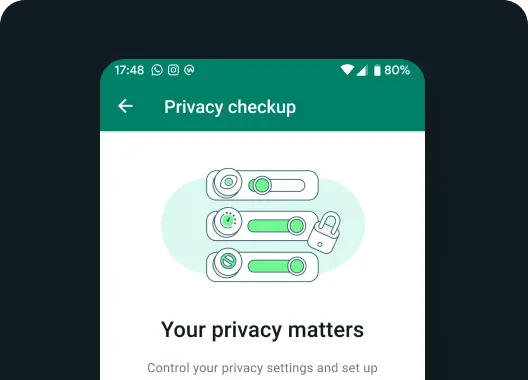
The combination of WhatsApp messages and the right to privacy offers certain legal concerns. First, people make a mistake thinking that their messages are hidden because WhatsApp has applied end-to-end encryption.
However, this assumption can be problematic when messages are demanded by a subpoena, or needed for court trials. Privacy rights differ from jurisdiction to jurisdiction and these differences are reflected as to how the courts view the use of private messages.
Sometimes the he rights of a fair trial Is considered more valuable than privacy of an individual, hence the admission of Whasa App messages in searches for certain information. It becomes more and more challenging to mend such dynamics where the practitioners in law have to manage the privacy factor but at the same time the litigational process requires disclosure.
It may be employing factual and technical analysis, however understanding the legal regulation of privacy rights is obliging for each individual who uses WhatsApp as the tool of communication, in the special cases.
To evaluate the Jurisdiction, the report presents the following data analysis:
WhatsApp messages’ employment within court comes with certain readability and this greatly depends on the jurisdiction. Every state and country can have its legislation concerning the electronic communication which may influence the treatment of the electronic evidence during the legal process.
For instance, certain jurisdictions might allow a wider range of digital evidence to be tendered in trials that in other jurisdictions, others might have more rigorous criteria as to the admission of such evidence into trial. In addition, there is the consideration of personal communications under the rules of international law and the GDPR in the EU, for example.
Legal professionals always need to be knowledgeable on specific statutes that exist in the region and ready to change strategies to match the laws required. Such information is crucial in the process of using WhatsApp messages as evidence in court – more so where you are dealing with cross-border matters.
The New Legal Trends That You Should Know About: Messaging Apps
The use of the applications like WhatsApp is radically shifting the conventional legal practices and forcing lawyers to shift their tactics because of the harmony of the communication methods.
Since clients now use messaging apps in their business, personal and even legal communication, legal practitioners must learn how to use these platforms in the acquisition of pertinent evidence. This shift has also made e-discovery or electronic discovery the process of search, collection and production of electronic documents for use in a case more important than ever.
Because of this, lawyers are now expected to grasp more about how such evidence is collected such as the preservation and analysis of messages from messaging applications.
Furthermore, the practice of using messaging applications in legal work we come across issues of legal professional privilege and ethical standard of lawyers on protecting information. It is imperative to adopt these changes especially for legal practitioners in order reduce gaps between the legal profession and technology enhanced society.
Best Practices for Lawyers
It also means that as WhatsApp and similar apps become features of legal processes, lawyers need to understand proper ways of dealing with Communication and electronic evidence. In the first place, both attorneys and their clients should increase awareness of possible consequences related to business communications via messaging applications, starting with privacy and admissibility issues.
Another area is the procedural development of guidelines for the collection and storage of the digital evidence where clients and their correspondents are also advised on methods of making messages backed-up, the avoidance of amendments of the messages and proper custody.
Furthermore, lawyers should where necessary enlist the services of a digital forensic specialist to ensure that all the electronic evidence is dealt with professionally and in a most ethical manner As.
strengthen their position in dealing with elec- tronic evidence by being fnal is to know the developments of certain technologies and the standards and laws concerning their use. When combined, these best practices help attorneys improve their case presentation skills in courtroom, and defend their clients’ right and interests for the online environment.
Conclusion
In conclusion, the admissibility of the messages Which were passed through the application of WhatsApp in the court depends on the legal jurisdictions, the privacy legislation and the manner used in taking and presenting the electronic-bay evidence. With the advancement in digital communication, legal rules and regulations shall also follow the same procedure and as litigants and legal practitioners we need to have a hint of how legal messaging apps are used in today’s world.
It will help the users effectively deal with legal issues arising from circumstances such as proper digital evidence collection measures, privacy rights in regard to the content to be collected, and jurisdiction of certain content. Technological advancement will as well always change communication and its legal implications thereby supporting the need to update more on law and digital media communication.
FAQ: Related Can WhatsApp Messages Be Used in Court
Can WhatsApp messages be used as evidence in court?
Indeed, WhatsApp messages are admissible as evidence in court depending on how they have been created. Nevertheless, admission of such messages depends on the following factors; the ability to prove the messages’ authenticity, pertinency of such messages to the case and whether or not they complied with the local laws on electronic evidence.
What is required to authenticate WhatsApp messages in court?
When introducing WhatsApp messages, the party that seeks to offer them as evidence must prove that the messages had not been modified in anyway. This may require attestation of witness from the sender or the recipient, supporting evidence or prove which is usually done through digital methods.
How can I preserve my WhatsApp messages for legal purposes?
To preserve WhatsApp messages for legal purposes, you should:
Take advantage of the export chat feature in case you want to save vital discussions.
Print messages of concern so that the top part of the page contains the sender’s information and/or the time the message was sent.
Document how and when the evidence was collected in other to establish legal proof of chain of custody.
How does jurisdiction affect the admissibility of WhatsApp messages?
Jurisdiction appears to be central to the admission of WhatsApp messages as evidence. While certain rules pertaining to electronic evidence may be harmonised on the federal level, state laws and rules and international laws and regulations are different and it may affect the rules for admissibility or relevancy, as well as the incumbent privacy laws.



